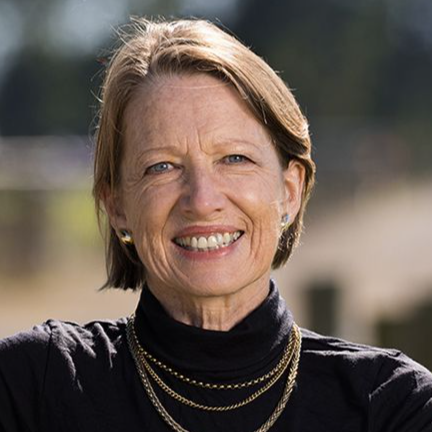In contrast, the Greenpeace solution, which continues to be “organic, regenerative, plant-based agriculture” actually increases emissions per unit of food production. It also feeds fewer people per hectare which would mean more land required to feed the current global population. And that means deforestation and a negative impact on biodiversity.
Also strangely, while Greenpeace accuses Fonterra of “greenwashing”, it overlooks the fact that organic systems rely on farmyard manure, some of which is created after animals have eaten crop material grown with synthetic nitrogen.
This has been termed “laundered nitrogen”. It renders the nitrogen invisible … until scope 3 emissions are calculated.
Scope 3 emissions are those greenhouse gas emissions for which the company is not directly responsible.
They are being calculated by only 8 per cent of the leading meat and dairy companies in America and Europe.
Fonterra has joined the elite group and the details appeared this month.
Fonterra’s goal is to reduce scope 3 emissions associated with on-farm intensity by 30 per cent by 2030, from a 2018 baseline.
The year chosen is after “peak dairy cow” of 2014/15 and fits with the Government’s chosen baseline.
Listen to Jamie Mackay talk to Dr Rowarth below:
The alignment makes sense to most people, as does the focus on “intensity” which means impact per kilogram of product.
Customers (such as Nestlé, McDonald’s, and Danone) and consumers say they want the least impact, and this is what New Zealand farmers already produce.
Fonterra has also explained that the 30 per cent is for all their milk, not individual farms, and has given the “how”.
Best practice management is number one on the list and could give a 7 per cent reduction.
Headlands (an agricultural consultancy company) showed last year that high-producing cows, being fed optimally with pasture quality being balanced by the use of supplements to ensure high-quality nutrition, can achieve what is required by Fonterra.
The use of supplements reduced GHG intensity per kilogram of production.
Ensuring that scope 3 emissions to do with feed are accurate is extremely important because internalising the emissions of the products brought on to the farm will increase the apparent emissions of the milk produced.
The supplement industry is doing specific Life Cycle Analyses of products to assist both Fonterra and farmers in reducing GHG intensity with appropriate feed.
Particularly concerning is Fonterra’s current allocation of Palm Kernel Expeller (PKE) to “deforestation/land use change” rather than “by-product”.
In the past, PKE was dumped in the ocean or burned after processing to remove the oil. Now it is sold to livestock farmers, providing another source of income in developing countries.
Deforestation is not acceptable, hence the focus on sustainable plantations for palm oil globally, not just the by-product.
And in New Zealand, the focus is on planting not deforestation – 16 per cent of Fonterra’s reduction will come from trees, through planting and by removing the legacy cost of deforestation.
The final 7 per cent will come from technologies still under development.
Like the government, Fonterra has set goals in terms of reduction. By focusing on intensity, the co-operative is recognising the requirements of customers and consumers.
Fine-tuning must occur for some of the calculations, particularly with by-products, but in the meantime, the income stream for the country is supported through direct employment and exports.
The Greenpeace solution of “fewer cows and a phase-out of synthetic nitrogen fertiliser, and more plant-based, regenerative, organic agriculture” will be appropriate for some farms, and Fonterra’s initiative might help to make the decision to move in that direction.
For others, however, inefficiency and business failure would result – the starting point is critical.
New Zealand does not have sufficient animals in housing to provide enough nitrogen through organic sources to support the rest of the primary sector.
Other countries can launder their synthetic nitrogen through crops for “organic feed” but New Zealand has regulations to stop this laundering from happening.
The alternative, reducing synthetic nitrogen as desired by Greenpeace, has been shown to result in a rapid drop in production and therefore ability to feed people from a given area.
It also shows the increase in GHG per unit of production and a marked drop in farm income.
The country could not maintain its current lifestyle and balance of payments on the drastically reduced export income.
The starting point for change is always important in considering the likely achievement of goals.
Instead of lambasting Fonterra for not doing more, Greenpeace might do well to consider educational theory where students are encouraged to do “even better” through praise.
New Zealand farmers already have a low environmental impact for the food they produce.
Some of the suggestions about reaching a new goal are probably not right – including the impact of PKE – but those from Greenpeace are simply wrong.
Passion should not be a reason for bad-mouthing or vulgar slang. Both reflect badly on the user.
- Dr Jacqueline Rowarth, CNZM HFNZIAHS, did honours in Environmental Agriculture and has a PhD in soil Science. She holds the position of Adjunct Professor with Lincoln University, and is a director of DairyNZ, Ravensdown and Deer Industry NZ. The thoughts and analyses presented here are her own. JSRowarth@gmail.com
